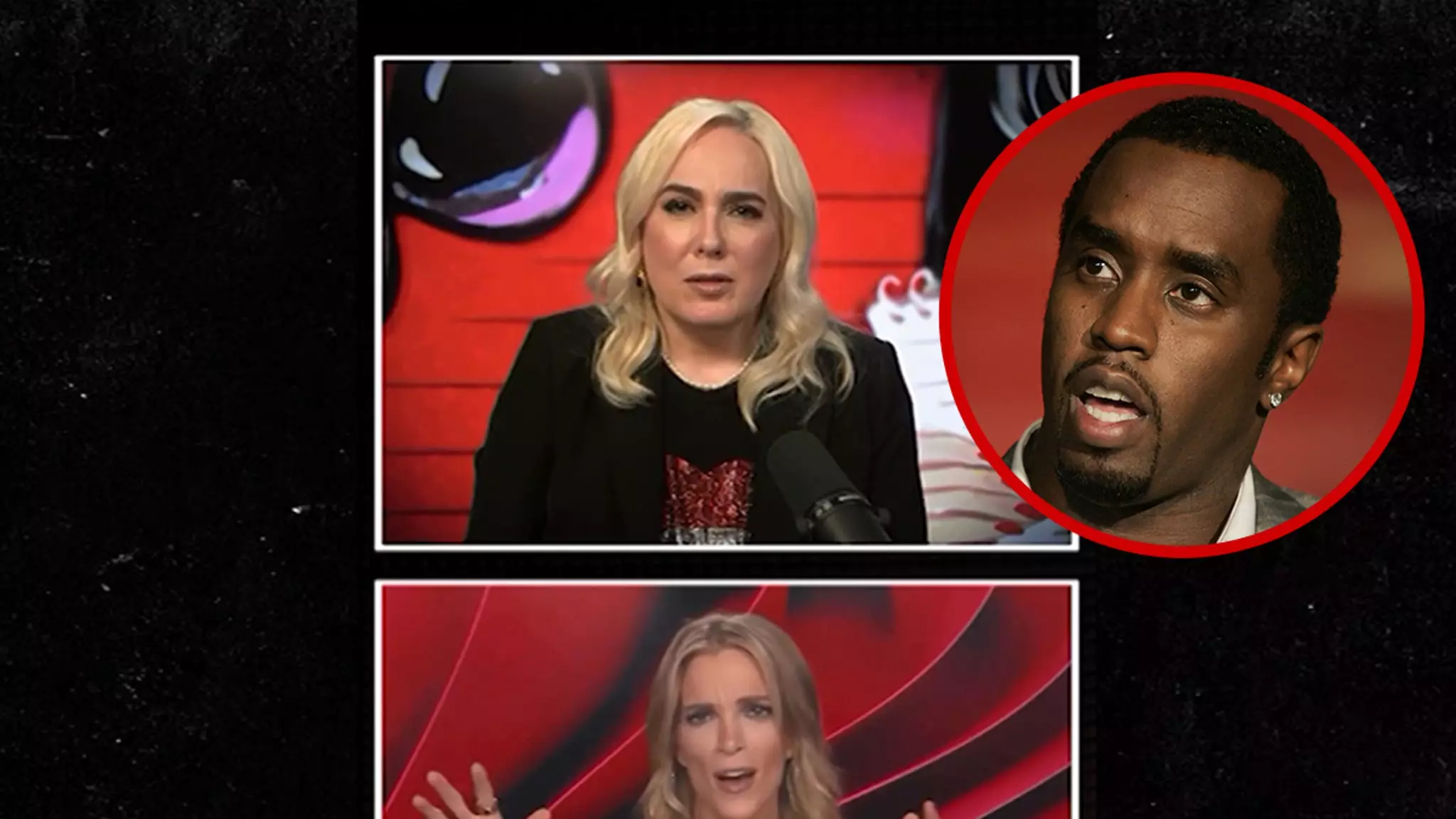In an age where celebrity culture intertwines seamlessly with everyday life, Megyn Kelly’s recent revelations about an alleged encounter with Diddy at the Met Gala have stirred a whirlwind of controversy. Kelly recounted her experience of stumbling upon Diddy and a Kardashian engaging in what she described as provocative behavior in a restroom. According to her, Diddy was “dry humping” a member of the Kardashian clan, an incident that she claims underscores a lack of respect for women’s private spaces. This narrative, striking in its drama, raises significant questions about the conduct of celebrities in public settings, as well as the subsequent implications for their reputations.
A Celebrity-Free-for-All?
The picture Kelly paints is not merely of a wild party but rather a troubling reflection on decorum—or the alarming lack thereof—at high-profile events like the Met Gala. When the world’s most affluent and influential individuals gather, one might expect a certain level of decorum; yet, Kelly’s story depicts a much more chaotic reality. The presence of numerous influencers and celebrities in a space intended for more private activities not only trivializes the concept of personal boundaries but also illustrates a disconcerting normalization of misconduct among the elite. The incident, if true, symbolizes how even arches of fame might lack basic respect for boundaries.
The Response: Denial and Deflection
Diddy’s camp has vehemently denied Kelly’s claims, suggesting that her recounting serves little more than a sensational headline, attempting to link the Kardashian name to an ongoing criminal trial against the music mogul. It is crucial to dissect why celebrities often become the scapegoats for narratives steeped in scandal. The swift rebuttals highlight a familiar pattern: when one star’s actions come under scrutiny, the narrative often attempts to envelop other prominent figures, as if the mere mention of their names brings additional notoriety to the initial claim. This tactic, while classic in tabloid journalism, raises ethical questions about the responsibility of media figures like Kelly in their narrative choices.
Underlying Ethical Dilemmas
The broader context of Kelly’s claims can be examined under the lens of media ethics and the power dynamics at play when powerful figures clash. The seriousness of Diddy’s alleged criminal charges cannot be understated, and the allegations brought forth by his former partner, Cassie, regarding abusive behavior, shed light on more significant issues of consent and respect that dare not be overshadowed by his public persona. Kelly’s remarks, rather than drawing attention to these severe accusations, lend themselves to sensationalism that shifts focus away from actual victims—mistakes like this can lead to greater societal harm.
Celebrity Culture Needs a Wake-Up Call
Ultimately, this incident underscores a crucial turning point for celebrities and media alike. As society grapples with evolving dialogues around consent, respect, and accountability, tales like Kelly’s must drive home the necessary conversation: is celebrity culture eroding personal boundaries and fostering an environment where misconduct is excused or minimized? The revelations serve as a potent reminder that the glitz of the red carpet cannot obscure the lingering shadows of real-world consequences. Celebrities inhabit a surreal realm, but the repercussions of their actions extend far beyond their golden façades, affecting countless lives in unseen ways.

